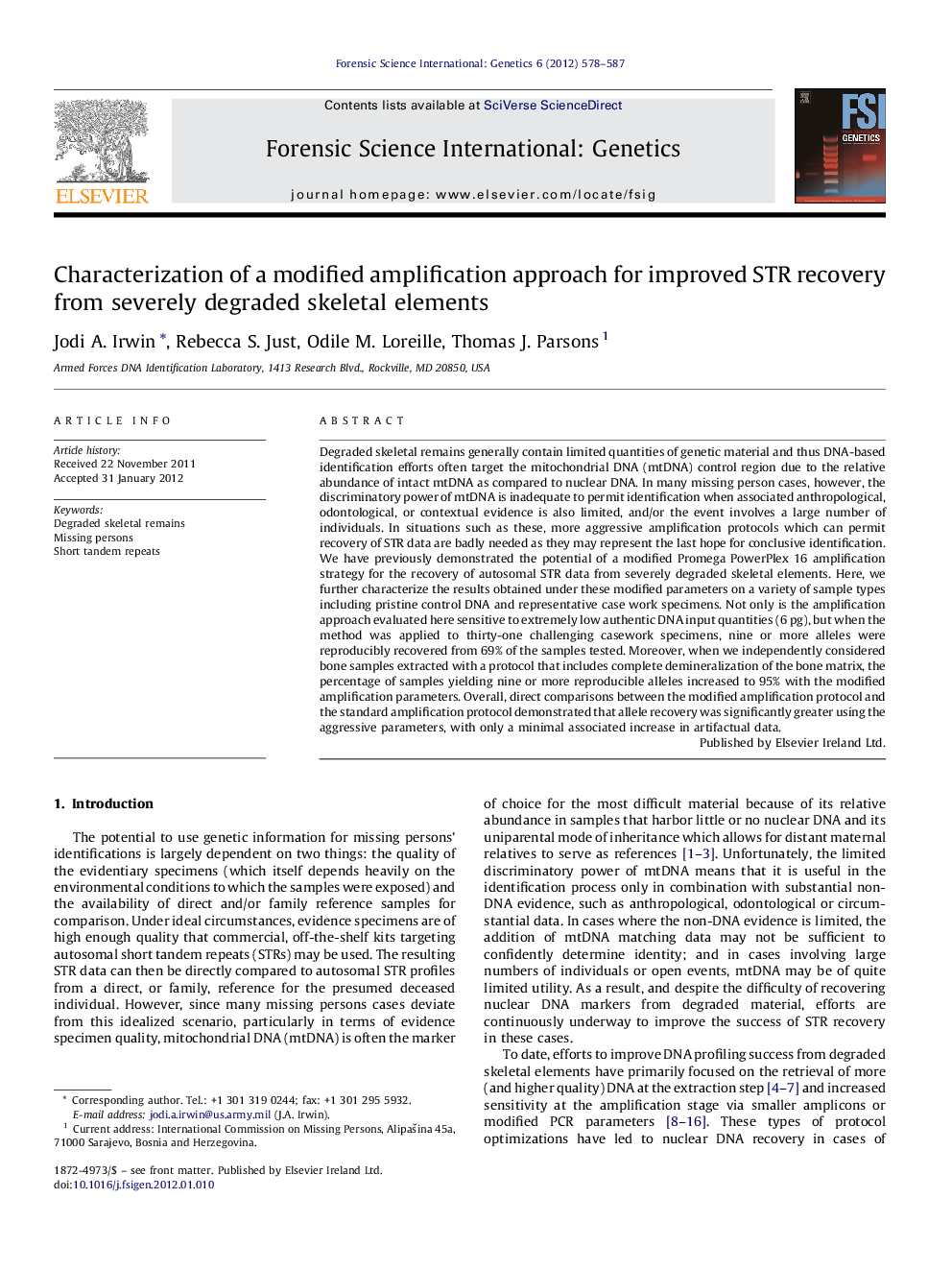| Article ID | Journal | Published Year | Pages | File Type |
|---|---|---|---|---|
| 98900 | Forensic Science International: Genetics | 2012 | 10 Pages |
Degraded skeletal remains generally contain limited quantities of genetic material and thus DNA-based identification efforts often target the mitochondrial DNA (mtDNA) control region due to the relative abundance of intact mtDNA as compared to nuclear DNA. In many missing person cases, however, the discriminatory power of mtDNA is inadequate to permit identification when associated anthropological, odontological, or contextual evidence is also limited, and/or the event involves a large number of individuals. In situations such as these, more aggressive amplification protocols which can permit recovery of STR data are badly needed as they may represent the last hope for conclusive identification. We have previously demonstrated the potential of a modified Promega PowerPlex 16 amplification strategy for the recovery of autosomal STR data from severely degraded skeletal elements. Here, we further characterize the results obtained under these modified parameters on a variety of sample types including pristine control DNA and representative case work specimens. Not only is the amplification approach evaluated here sensitive to extremely low authentic DNA input quantities (6 pg), but when the method was applied to thirty-one challenging casework specimens, nine or more alleles were reproducibly recovered from 69% of the samples tested. Moreover, when we independently considered bone samples extracted with a protocol that includes complete demineralization of the bone matrix, the percentage of samples yielding nine or more reproducible alleles increased to 95% with the modified amplification parameters. Overall, direct comparisons between the modified amplification protocol and the standard amplification protocol demonstrated that allele recovery was significantly greater using the aggressive parameters, with only a minimal associated increase in artifactual data.
